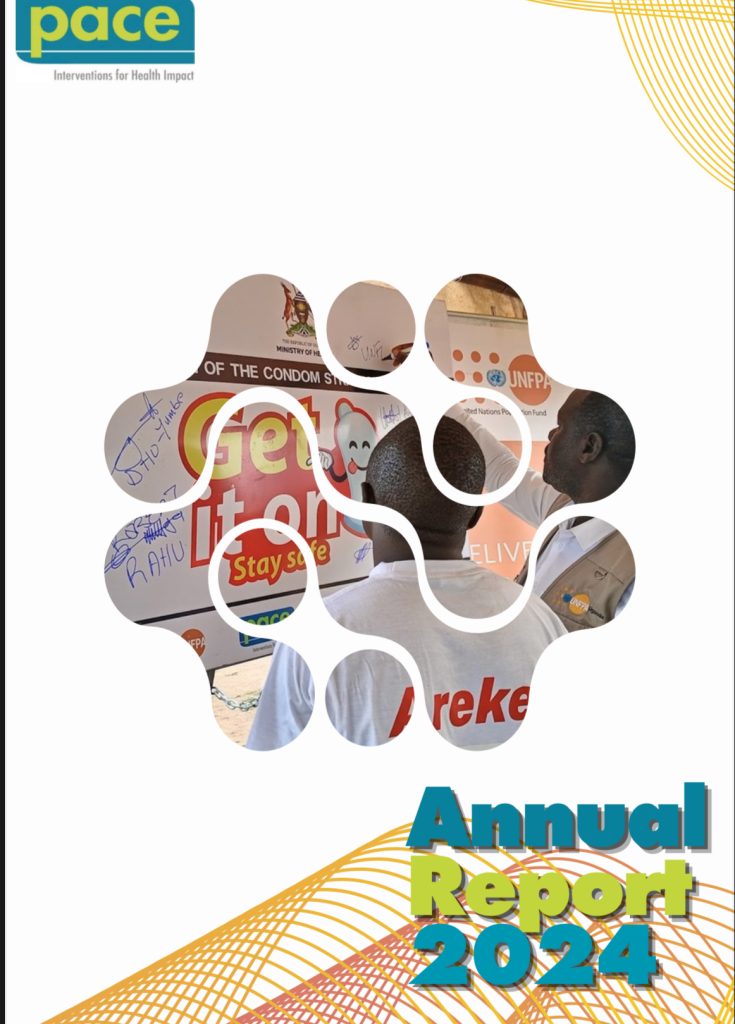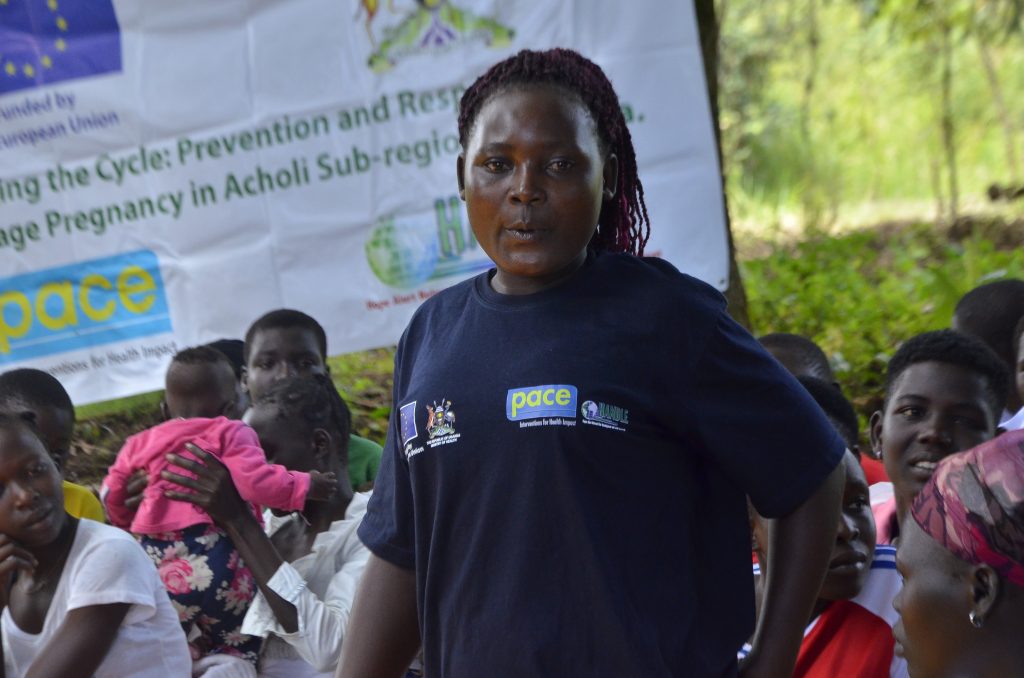Pace Uganda 2024 Annual Report Summary
As we reflect on how we, as an organization, can do more, we cannot forget our past achievements. We navigated both challenges and opportunities in a rapidly changing global landscape but still managed to achieve significant milestones across key sectors, including HIV/AIDS, Reproductive Health, Maternal and Child Health, Immunization, Malaria, WASH, and Non-communicable Diseases (NCDS), reaching 94 districts in 2024 alone. “The Programme for Accessible Health Communication and Education (PACE)remains distinguished by its people-centered approach, grounded in Obuntubulamu values, honesty, empathy, responsibility, integrity, and humility,” said our Patron, The Queen of Buganda, Sylvia Nagginda Luswata. The PACE team remained steadfast in upholding our core values: Recognition and Reward, Innovation and Creativity, Open Communication and Teamwork, Speed and Efficiency, Transparency and Accountability. In 2024, PACE reached 1,888,700 individuals with health services and implemented eight projects. We completed four impactful initiatives, such as the Differentiated Condom Demand Generation and Last-Mile Distribution Initiative, Social and Behavioral Change Campaign for IG2 nets, Long Lasting Net durability monitoring, and addressing ICCM commodity stockouts in Uganda. As a result of this: We are grateful for the support of donors and partners that have supported us over the years: PMI/USAID, BASF, The Global Fund/MOH, PATH, AMF, VisionSpring, and others, and extend special thanks to the Ministry of Health, local governments, and community resource persons for their invaluable contributions to our work. Together, we have made a meaningful impact on the health and well-being of the communities we serve. Despite global and national funding constraints for health, PACE has adapted its strategies to sustain service delivery. As Leaders in Solutions for the Health Market, we look forward to championing change and creating solutions that influence positive changes in our community and intend to expand into climate change, positioning PACE as a key partner in building climate-resilient health systems in line with our emerging donor priorities. The Health projects PACE Uganda worked on can be found here:


